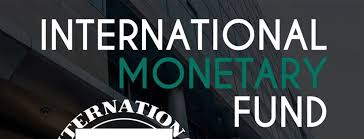Definition of IMF
The International Monetary Fund (IMF) is a global organization focused on international financial stability. The IMF provides loans and financial assistance to member countries experiencing economic difficulties. Operating within the international monetary system, the IMF plays a crucial role in international payment systems, currency exchange rates, and resolving balance of payments issues. Headquartered in Washington D.C., the IMF currently has 190 member countries and has provided over $1 trillion in financial assistance through various loan agreements.
History of the IMF
The IMF was established in 1944 during the Bretton Woods Conference held in the United States. This conference was attended by representatives from 45 countries who agreed to create a framework for global economic cooperation to prevent another Great Depression similar to the one in the 1930s. The economic difficulties of the time led many countries to implement protectionist trade policies, which exacerbated the economic downturn.
In December 1945, the IMF was officially founded with 29 member countries signing its charter. Its primary goals were to oversee the international monetary system, stabilize exchange rates, and remove trade barriers.
Objectives of the IMF
Monitor Economic Developments and Policies: The IMF oversees the economic policies and developments of member countries, offering advice to improve economic policies and ensure they support economic stability.
Provide Financial Assistance: The IMF provides loans to countries facing balance of payments problems. These loans often come with conditions for implementing economic reforms.
Offer Technical Assistance and Training: The IMF provides training to central banks and governments on economic management and monetary policy.
Hold Annual Meetings: The IMF hosts annual meetings to discuss global economic issues, held at its headquarters for two consecutive years and in a member country in the third year.
Key Functions of the IMF
- Facilitate International Transactions: Ensuring smooth and balanced international transactions.
- Encourage Exchange Rate Stability: Maintaining stability in international currency exchange rates.
- Multilateral Payment System: Supporting the creation of an effective international payment system.
- Assist Member Countries: Providing aid to member countries facing economic difficulties with high-quality safeguards.
- Poverty Reduction: Contributing to global efforts to reduce poverty.
IMF's Role in Indonesia
1997-1998 Economic Crisis: During Indonesia's economic crisis, the IMF recommended raising interest rates to 70% to address capital flight and control inflation. This measure successfully stabilized inflation at that time.
Reduction of Subsidies and Tariffs: The IMF also advised cutting subsidies for fuel and electricity tariffs to improve the balance of payments. While these policies reduced the government's fiscal burden in the short term, they negatively impacted the purchasing power of the population.
Privatization: The IMF suggested privatizing several state-owned enterprises as part of economic reforms to enhance efficiency and reduce the government’s fiscal burden.
Financial Assistance: During the crisis, the IMF provided approximately $5 billion in assistance to Indonesia. However, economists such as Joseph Stiglitz and Paul Krugman have criticized IMF policies for potentially worsening the crisis in the long term.
The IMF plays a crucial role in the international monetary system, serving as a source of funding, economic policy overseer, and facilitator of global economic cooperation. In Indonesia, the IMF has been involved in providing aid during economic crises, though its policies and recommendations are often debated regarding their long-term impact.

